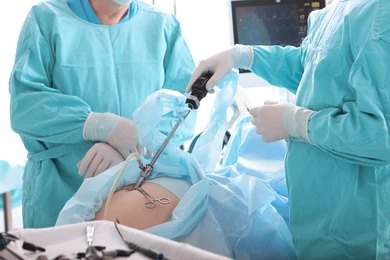Cancer is a significant health concern worldwide, affecting millions of people each year. Early detection is crucial, as it often leads to more effective treatment and better outcomes. Recognizing the early signs of cancer can empower individuals to seek medical attention promptly. In this article, we’ll cover some of the most common early signs, risk factors, and the importance of routine screenings. For those in Ranchi, we’ll also highlight a top healthcare facility for specialized cancer care.
What is Cancer?
Cancer is a disease characterized by the uncontrolled growth and spread of abnormal cells in the body. It can develop in nearly any organ, with common types including breast, lung, skin, and blood cancers. Early diagnosis is key, as it can allow for more targeted and less aggressive treatments, often improving the patient’s quality of life and survival rate.
Common Early Signs of Cancer
While symptoms can vary depending on the type of cancer, there are several general signs to watch out for. If you notice any of these symptoms persisting, it may be time to consult a healthcare professional:
- Unexplained Weight Loss: Losing weight without trying can be an early indicator of cancers such as those affecting the pancreas, stomach, esophagus, or lungs.
- Persistent Fatigue: Extreme tiredness that doesn’t improve with rest may be a symptom of cancers like leukemia or colon cancer.
- Pain That Doesn’t Go Away: Chronic pain, especially in the bones or other specific areas, could signal certain types of cancer.
- Unusual Lumps or Swellings: New lumps or thickening in areas like the breast, testicles, or other body parts should be evaluated promptly by a healthcare provider.
- Changes in Skin: Be on the lookout for alterations in moles, skin color, or sores that don’t heal, as these can indicate skin cancer.
- Changes in Bowel or Bladder Habits: Persistent constipation, diarrhea, blood in the stool, or unusual bladder symptoms may point to colorectal or bladder cancer.
- Persistent Cough or Hoarseness: A cough that doesn’t go away or persistent hoarseness could be early signs of lung or throat cancer.
- Difficulty Swallowing: Trouble swallowing might be associated with cancers of the esophagus or throat.
Specific Symptoms for Different Cancer Types
Each type of cancer has its own set of symptoms. Here are a few examples:
- Breast Cancer: Changes in breast shape, lumps, or nipple discharge.
- Lung Cancer: Persistent cough, chest pain, or coughing up blood.
- Colorectal Cancer: Blood in the stool, changes in stool shape, or abdominal pain.
- Skin Cancer: Changes in mole size, shape, or color, or itchy and non-healing patches.
The Importance of Routine Screenings
Screenings can detect certain types of cancer early, often before symptoms appear. Regular screenings are especially important for individuals at high risk or with a family history of cancer. Some common screening tests include:
- Mammograms for breast cancer detection.
- Pap smears for cervical cancer.
- Colonoscopy for colorectal cancer.
- Low-dose CT scans for lung cancer in high-risk groups.
Consulting with a healthcare provider can help determine which screenings are appropriate based on your age, gender, and individual risk factors. For those seeking quality care, the Best Cancer Hospital in Ranchi offers comprehensive cancer services, including screenings, diagnosis, and treatment, with a team of expert oncologists and state-of-the-art technology.
How Lifestyle Plays a Role
While not all cancers are preventable, certain lifestyle changes can help reduce your risk:
- Avoid Tobacco and Limit Alcohol: Smoking and excessive alcohol intake are significant risk factors for many cancers.
- Eat a Balanced Diet and Exercise: A diet rich in fruits, vegetables, and whole grains, combined with regular physical activity, can help reduce the risk of several cancers.
- Protect Your Skin: Limit exposure to UV rays by wearing sunscreen and protective clothing, reducing the risk of skin cancer.
- Minimize Exposure to Carcinogens: Limiting exposure to harmful chemicals and toxins, like asbestos, can also lower your risk.
When to See a Doctor
If you experience any unusual or persistent symptoms, consulting a healthcare professional is essential. Early evaluation can lead to prompt diagnosis and treatment, which may improve the likelihood of successful outcomes. Regular checkups, especially as you age or if you have a family history of cancer, are valuable for ongoing health monitoring.
FAQs
1. What should I do if I find a lump?
If you notice a new lump or swelling, schedule an appointment with a healthcare provider for evaluation. While not all lumps are cancerous, a medical evaluation can help provide clarity and peace of mind.
2. Can lifestyle changes really reduce my risk of cancer?
Yes, maintaining a healthy lifestyle by eating a balanced diet, exercising regularly, avoiding tobacco, and limiting alcohol can reduce the risk of several types of cancer.
3. Are all cancers detectable through screenings?
Not all, but many common cancers have effective screening methods. Consult your doctor for personalized advice on which screenings are suitable for you.
4. Is cancer always accompanied by pain?
No, some cancers may not cause pain, especially in the early stages, which is why regular screenings and being attentive to unusual symptoms are essential.




